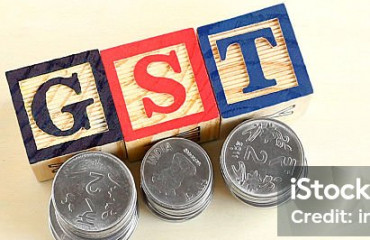
Shankar Gowda Hadimani, a vegetable vendor in Karnataka, received a ₹29 lakh GST notice. He claims that he isn't registered for GST as no rules apply to his business.
Shankar Gowda Hadimani, a vegetable vendor in Karnataka's Haveri received a ₹29 lakh GST notice from Bengaluru Tax Office. Hadimani argues he isn't registered for a GST number because there are no rules applicable to his business. The vendor says tax officials have indicated the notice could be revoked if his sales are confirmed.
Speaking to ANI, Hadimani said, "... Since there are no GST rules on fruits and vegetables, I did not register for GST number. But I got a notice to pay ₹29 lakh in taxes for a business of over ₹40 lakh... The officials have told me that if it is proven that I have done so much business in vegetables, the notice will be withdrawn..."
6,000 GST notices issued over UPI data
Hadimani's case highlights a wider issue in Karnataka involving the issuance of nearly 6,000 GST notices based on UPI transaction data. A report by PTI, citing a top tax official, described the action as being within the legal framework.
Meera Suresh Pandit, Joint Commissioner of Commercial Taxes, explained that these notices are not final tax demands, and recipients can respond with supporting documents. She added that if the response is convincing or if the goods and services are exempt under the GST Act, the notices will be withdrawn, the report said.
"When a person reaches the threshold limit of ₹20 lakh for services or ₹40 lakh for goods, it is mandatory for the person to get registered under the GST Act to take registration and declare his turnover," the officer told PTI.
"The registration empowers the trader to collect taxes from the consumers and pay it to the government. These taxes are meant for the government, but when the dealers collect them and fail to remit them, they are treated as unregistered persons, and we issue notices accordingly," she added.
She further claimed that the department cannot identify each trader avoiding registration; therefore, the Services Analysis Wing at the head office relies on sources such as UPI transaction data to detect potential defaulters.
"If a person has transacted over ₹20 lakh for services or ₹40 lakh for goods in a year through UPI, it indicates that they may be liable to register under GST," Pandit said.
Meanwhile, trade activist Sajjanraj Mehta expressed concerns regarding the fairness of the recent GST notices.
He said that although the Commercial Taxes Department is legally allowed to use such data, the absence of prior warning, context, and awareness has led to confusion.
"Many small traders were unaware that their UPI inflows, often a mix of business and personal transactions, would be treated as undeclared turnover," Mehta told PTI.
"The fairness issue lies not in enforcement itself, but in the suddenness and lack of clarity," he added.
Additionally, he asked the department to differentiate between exempt and taxable goods before issuing notices.
He claimed that issuing notices without considering exempt goods such as fruits, vegetables, or unbranded food items demonstrates a lack of nuance.
"A more tailored, data-informed approach could have avoided unnecessary panic," he said.
Shift from UPI
Mehta recognised an increasing trend among vendors in Bengaluru and Mysuru to shift from UPI.
"There is visible hesitation, especially in markets and grocery stores. Some vendors are reverting to cash or asking customers to avoid UPI. However, urban areas with tech-savvy customers still show strong digital payment usage," Mehta said.
Mehta further mentioned that traders are now looking for clear guidelines on how GST applies to UPI transactions, along with a mechanism to contest mismatches or clarify exemptions without facing immediate penalties. He also demanded awareness programmes for vendors in regional languages.
Stay updated with the latest Trending, India , World and United States news.
